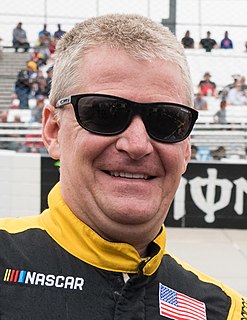A Quote by Scott Derrickson
If we had one person who could perfectly read minds we could solve a lot of problems in the world in a very short period of time.
Related Quotes
There's a lot of guys that are able to perform for a short period of time. It could be a week, it could be a month, it could be two months, it could be one season. It's doing it over and over. And being consistent was something that watching Patrick Roy all these years, that's what he was. He never had down years.
I LOVE YOU SO MANY REASONS ' --- Before i met you I spent a lot of time meeting all kinds of people i had a lot of fun and learned a lot Though each person I met had great characteristics something was missing No one person had all the qualities that I had hoped a person could have- someone whose every action and thought I could respect someone who was very intelligent yet could also be fun-loving someone who was sensitive, yet virile exciting and sensuous someone who knew what they wanted out of life. a beautiful person inside and out I could not find a person like this until i met you
Let me just say you could end this violence within a very short period of time, have a complete ceasefire - which Iran could control, which Russia could control, which Syria could control, and which we and our coalition friends could control - if one man would merely make it known to the world that he doesn't have to be part of the long-term future; he'll help manage Syria out of this mess and then go off into the sunset, as most people do after a period of public life. If he were to do that, then you could stop the violence and quickly move to management.
We certainly would resolve the problems of the charities that are working in areas where they can do the most good. So if you consider that the U.S. foreign aid budget is 30 billion, yes, we could make a major contribution to reducing global poverty, start to deal much better with some of the other big environmental problems that the world faces. So I think we could solve a lot of problems.
If you go from $7 to $15 in a very short period of time, potentially that could have a negative effect on some economies because that is a very big jump. And you're saying to businesses that employ a large number of minimum wage workers, your payroll is basically going to double. That could have a negative impact. It would have to be studied.
I'm sort of optimistic about what we could do, but I'm very pessimistic about what we will do. I can't tell you that Al Gore's 10-year plan is impossible. I'm old enough to remember the Second World War - if we had a World War II-type mobilization, we might accomplish Gore's plan. In 1940 we were making tens of thousands of automobiles, and in 1941 we were making tens of thousands of airplanes. We mobilized as a nation. If we get that kind of mobilization as a nation or globally, then we could solve a lot of these problems.
We lost three very young, very talented drivers in a really short time and that had a lot of influence, too. Certainly Dale's death was a huge smack in the face to everybody, but all those deaths in such a short period of time was awful. It forced people to look at it and say, 'Hey, this isn't a coincidence. There's something going on'.
I like reading books about kids where there weren't really many adults, where they didn't need an adult to come and solve the problems for them. They could use their own ingenuity, use their own talents to solve whatever the issue was. And I like that still. I think that children want to read about heroic children. They don't want to read about children that have to be saved all the time.
I had noticed that many of these successful people, historical and contemporary, shared certain common traits. They had a way of thinking that was exceptionally fluid; they could adapt to almost any circumstance; when confronted with problems, they could look at them from novel perspectives and solve them.






































